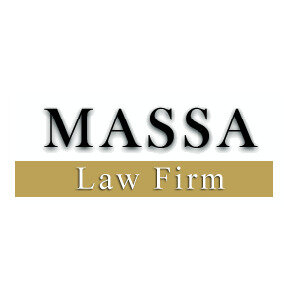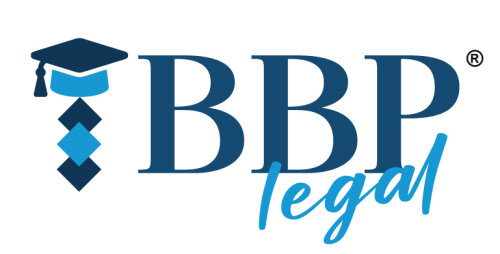Best Franchising Lawyers in Italy
Share your needs with us, get contacted by law firms.
Free. Takes 2 min.
Or refine your search by selecting a city:
List of the best lawyers in Italy
About Franchising Law in Italy
Franchising in Italy is a well-established business model allowing companies to expand their market presence by partnering with local entrepreneurs. In Italy, franchising is governed by specific laws and regulations that seek to ensure fair dealings and transparency between franchisors and franchisees. The legislative framework is primarily derived from the Decreto Legislativo 206/2005, also known as the Consumer Code, which outlines the rights and responsibilities of both parties involved. Italian franchising law emphasizes clear contractual obligations, disclosure requirements, and the protection of intellectual property rights.
Why You May Need a Lawyer
Legal assistance can be crucial in various scenarios within the franchising process in Italy. Some common situations where legal expertise might be necessary include:
- Contract Review: A lawyer can help evaluate franchise agreements to ensure compliance with Italian law and protect your interests.
- Dispute Resolution: If conflicts arise between franchisors and franchisees, legal counsel can assist in negotiations or represent you in arbitration or court proceedings.
- Intellectual Property: Protecting trademarks, brand names, and proprietary methods is crucial, and a lawyer can guide you in safeguarding these assets.
- Compliance and Regulations: Keeping up with regulatory changes and ensuring compliance with local business laws can be complex, and legal guidance is beneficial.
- Termination Issues: If a franchising relationship ends unfavorably, legal advice is necessary to handle contract termination and potential damages.
Local Laws Overview
The foundational law governing franchising in Italy is the Franchising Regulation (Regulation EC, Italian D.Lgs. 206/2005). Key aspects of local laws include:
- Pre-Contractual Disclosure: Franchisors must provide potential franchisees with a disclosure document at least 30 days before signing the contract, detailing financial data, litigation history, and a description of the franchise system.
- Contractual Framework: The franchise agreement must be in writing and include essential elements such as the duration, renewal conditions, and termination clauses.
- Intellectual Property Protection: Encompasses trademarks and brand use, with explicit permissions outlined in the contract.
- Mandatory Training and Assistance: Franchisors are typically obliged to provide initial training and ongoing support to franchisees.
- Consumer Protection Laws: Franchisees must adhere to consumer rights regulations as stipulated in the Consumer Code.
Frequently Asked Questions
How long must the franchise agreement be?
There is no set minimum duration, but contracts typically last for 3 to 10 years. Terms depend on the negotiation between the franchisor and franchisee.
What happens if a franchisor fails to provide the pre-contractual information?
Failure to deliver the disclosure document can result in the nullification of the franchise agreement and potential compensation claims from the franchisee.
Are franchise fees refundable?
Refund policies depend on the terms set in the franchise agreement. Generally, fees are non-refundable except in cases of misrepresentation.
Can a franchisee terminate the agreement early?
Early termination is possible but usually involves penalties. Legal advice should be sought to explore options and mitigate financial repercussions.
What is the role of mediation in franchise disputes?
Mediation serves as an alternative dispute resolution mechanism, offering a less adversarial and more cost-effective method than litigation.
Is a notarial certification required for franchise contracts?
Notarial certification is not mandatory but may be beneficial for validating the agreement and ensuring enforceability.
What are the typical obligations of a franchisee?
Franchisees are expected to follow the business operations manual, pay royalties, and maintain brand standards as specified in the agreement.
Can franchise agreements include non-compete clauses?
Yes, non-compete clauses are common but should be reasonable in duration and geographical scope to be enforceable under Italian law.
Who is responsible for obtaining business permits and licenses?
Generally, the franchisee is responsible, but the franchisor may provide assistance and guidance.
Are there specific advertising obligations?
The franchise agreement usually details advertising obligations, including local and national contributions to marketing campaigns.
Additional Resources
For further assistance and resources related to franchising in Italy, consider the following organizations:
- Italian Franchise Association (Associazione Italiana del Franchising - Assofranchising): Provides support and guidance to both existing and prospective franchise businesses.
- Italian Chamber of Commerce: Offers resources and advice on starting and running a business in Italy.
- Ministry of Economic Development (Ministero dello Sviluppo Economico): Oversees business regulations, including franchising laws.
Next Steps
If you require legal assistance in franchising in Italy, consider the following steps:
- Identify and consult with a lawyer specializing in franchising law to discuss your needs and potential challenges.
- Prepare relevant documentation, such as your current franchise agreement or business plan, to facilitate a productive consultation.
- Engage in initial consultations to understand your legal position and explore the best strategies to protect or advance your interests.
- Stay informed about legal updates and participate in industry events or seminars to network and gain further insights into the Italian franchising market.
Lawzana helps you find the best lawyers and law firms in Italy through a curated and pre-screened list of qualified legal professionals. Our platform offers rankings and detailed profiles of attorneys and law firms, allowing you to compare based on practice areas, including Franchising, experience, and client feedback.
Each profile includes a description of the firm's areas of practice, client reviews, team members and partners, year of establishment, spoken languages, office locations, contact information, social media presence, and any published articles or resources. Most firms on our platform speak English and are experienced in both local and international legal matters.
Get a quote from top-rated law firms in Italy — quickly, securely, and without unnecessary hassle.
Disclaimer:
The information provided on this page is for general informational purposes only and does not constitute legal advice. While we strive to ensure the accuracy and relevance of the content, legal information may change over time, and interpretations of the law can vary. You should always consult with a qualified legal professional for advice specific to your situation.
We disclaim all liability for actions taken or not taken based on the content of this page. If you believe any information is incorrect or outdated, please contact us, and we will review and update it where appropriate.
Browse franchising law firms by city in Italy
Refine your search by selecting a city.
















